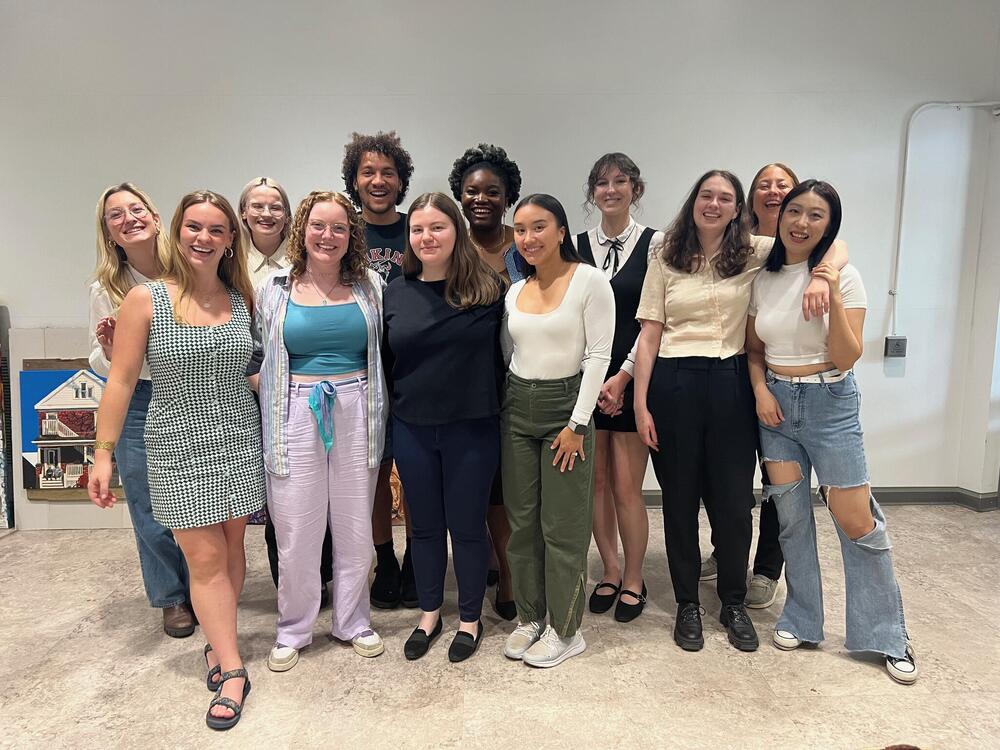On June 11, MA Capstone students presented their projects to an audience of peers, friends, and parents in a delightful and thought-provoking symposium. During the capstone course, each student takes work they did in a previous course and nudges it a little bigger, deeper, better, or just different: they might, for example, begin to orient the work to a professional or community audience, which might involve transforming it into a different medium. The capstone is meant to generate some momentum as students leave the program for work, further study, or adventures and accomplishments as yet unknown! Great thanks are due to Dr. Ayca Tomac, the mentor of this group.
Panels were as follows:
“Art As” — works of Research-Creation, performance, and film
Jared Augustin presented a compelling spoken word poem titled “Hello, I am Home,” complemented by paintings, and Olivia Teti’s reflections on mental health, haunting, and travel had memorable lines including “I think I left my conscience on: I saw it boiling over,” and “hell is not devoid of skateboards” (!). Bailey Laing reported on a collective art-making and community-building project, and Mackenzie Gribbon presented a custom-dressed mannequin and a video that vividly disturbed notions of victim blaming in sexual assault.
“Research in Action” — research for tangible social change
Stephanie Mah shared the toolkit and workshop she has designed to draw girls into the STEM fields, guided by the concept of “self-efficacy.” Fatema Ali presented her work on the need for better cultural experts at the Immigration and Refugee Board of Canada, and Lisa Maracle discussed and compared tools that might move towards the resurgence of an Indigenous Justice system in her home community, the Mohawks of the Bay of Quinte.
“Methods in Practice” — on the doing of research
Abby McLean reflected on the ethics, politics, and personal experience of global development work under the evocative title “Three White People in Botswana Wearing White Linen Suits.” Faith Chipman reported on interviews she did with internal migrant workers in Shanghai just before the pandemic, noting how different things are now in the city. Oyindamola Alaka teased out the complex economic, social, and cultural contexts of the Nigerian social media phenomenon Bobrisky.
“Knowledge Unbound” — exploring the role of audiences
Drawing from her expertise as both a science and humanities student, Natalie Burgess offered a blueprint for more effective public communication about the role and limits of reforestation as a climate strategy. Emma MacGregor-Mitchell discussed what commodity-driven not-really-subcultures in the online world, such as Ballet Core or Recession Core, may signify about their practitioners or our cultural moment. Nicole Gao explored how A.I. may offer a way to sustain – and change -- traditional Chinese Opera.
Congratulations once again to the MA Capstone class of 2024!
